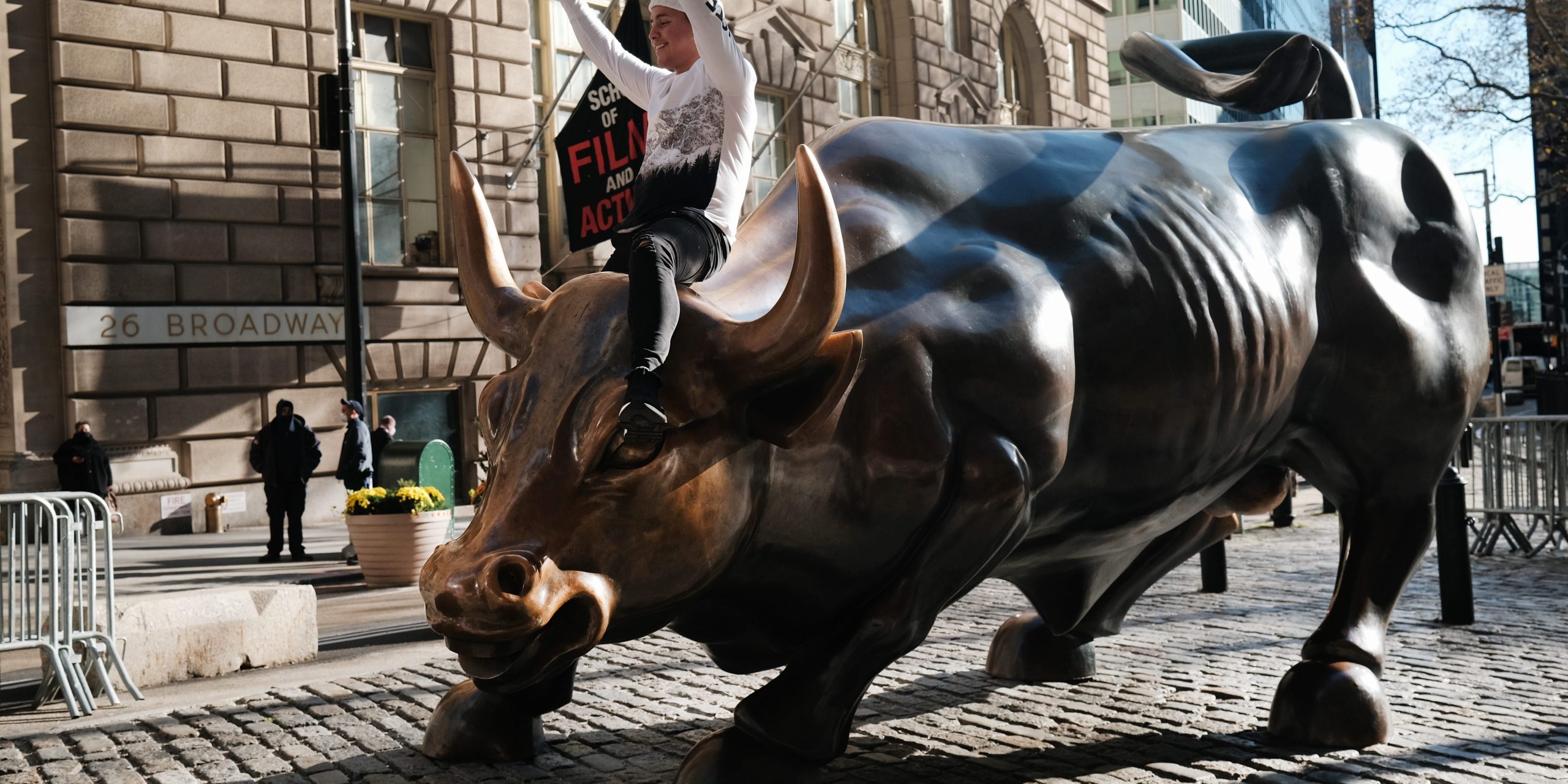
Spencer Platt/Getty Images
- The SPAC frenzy continues in 2021, with over 130 blank check firms listing this year already.
- Standing out has become much more challenging as the field becomes crowded.
- Some SPACs are resorting to new methods to catch the eye of investors, according to a report in DealBook on Wednesday.
- Sign up here for our daily newsletter, 10 Things Before the Opening Bell
SPACs are booming. Otherwise known as blank-check companies, SPACs have exploded since the start of 2020, with over 130 SPAC listings already in 2021.
SPACs list with the aim of identifying a merger partner to take public. This method is typically done in lieu of an IPO or a direct listing, and has garnered support from Wall Street heavyweights as well as pop icons and professional athletes.
Given the frenzy around blank-check listings, the field is becoming increasingly crowded. According to a report in DealBook on Wednesday, some SPACs are resorting to new methods to catch they eye of investors.
Here are what four high-profile backers are doing to stand out.
1. NightDragon Acquisition Corp, a SPAC started by the former FireEye executive Dave DeWalt, opted for a structure meant to benefit all shareholders, rather than favor sponsors.
NightDragon links its "promote", which is the 20% stake that goes to the sponsor regardless of how the deal turns out, to the performance of the merger. NightDragon announced Monday its plans to raise $300 million at $10 each share this week.
2. Pershing Square Tontine Holdings, a SPAC started by billionaire hedge fund manager Bill Ackman, has also rewritten the rules. Ackman has said he will be "taking no compensation" in a bid to appeal to more investors. "We created the most investor-friendly SPAC in the world," Ackman said, adding that SPACs are an easier route to public markets than a traditional IPO.
3. For Reinvent Technology Partners, a SPAC started by LinkedIn co-founder Reid Hoffman, founder shares will have up to a five-year lockup period before they can be sold. "The economics are aligned much closer to venture capital," he told New York Times.
4. Executive Network Partnering Corp., a SPAC for which Former House Speaker Paul Ryan serves as chairman, will give founders 1% of the company's size. That is about half of what most SPACs are charged. Investment banking advisory firm Evercore called this structure CAPS, or "capital which aligns and partners with a sponsor."
